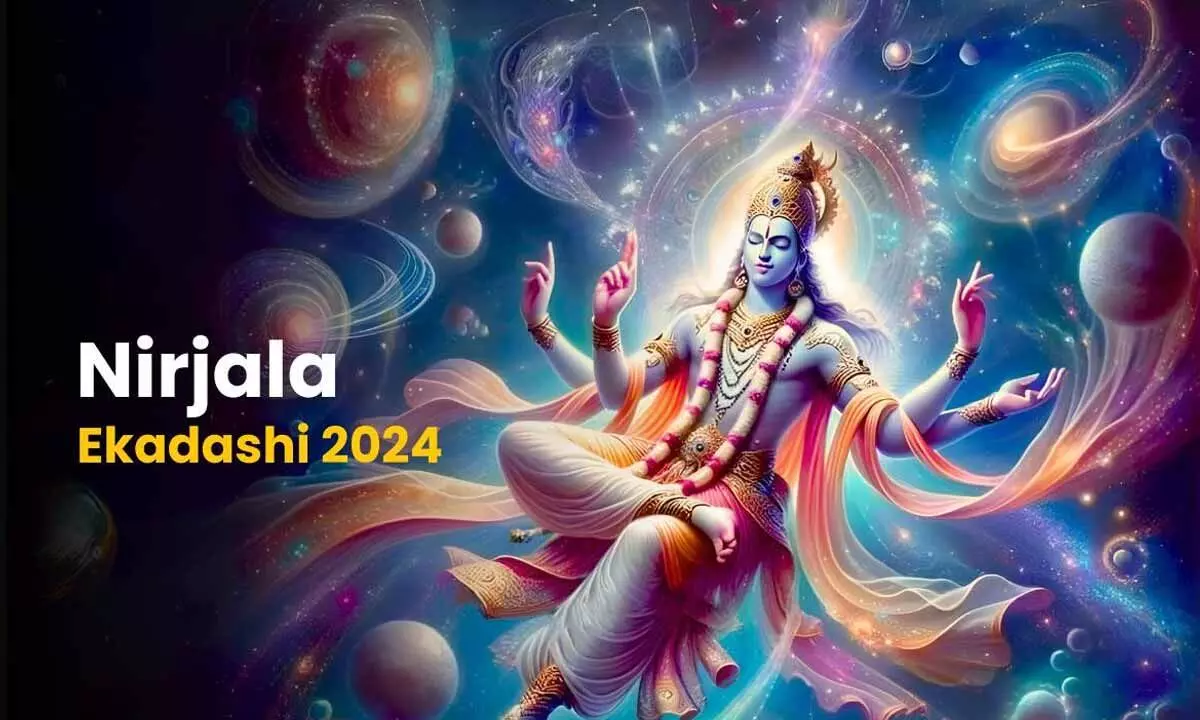Nirjala Ekadashi 2024: Date, Significance And Rituals

Nirjala Ekadashi holds immense significance among Hindus as one of the most stringent fasting days.
Nirjala Ekadashi holds immense significance among Hindus as one of the most stringent fasting days. It falls on the 11th lunar day (Ekadashi) of the waxing (Shukla Paksha) fortnight of the month of Jyeshtha in the Hindu calendar, typically occurring in May or June. The term “Nirjala” translates to “without water,” signifying a rigorous fast where devotees abstain from both food and water for 24 hours. It is believed that observing Nirjala Ekadashi grants the benefits equivalent to observing all 24 Ekadashi fasts throughout the year. Dedicated to Lord Vishnu, devotees seek his blessings for health, wealth, and spiritual progress through this sacred observance.
Date and Timing
According to the Hindu calendar, the Vaishakh Shukla Paksha Ekadashi tithi will begin on May 18 at 11:22 am and conclude on May 19 at 1:50 pm. Nirjala Ekadashi falls on May 19, and the auspicious time for worship is from 7:10 am to 12:18 pm. Rituals will be performed on May 20 between 5:28 am and 8:12 am.
Significance of Nirjala Ekadashi
Nirjala Ekadashi holds immense significance in Hindu tradition as one of the most stringent fasting days. It falls on the 11th lunar day (Ekadashi) of the waxing (Shukla Paksha) fortnight of the month of Jyeshtha, typically occurring in May or June. The term “Nirjala” denotes fasting without water, symbolizing devotees' rigorous 24-hour fast. This observance is believed to bestow the benefits of all 24 Ekadashi fasts of the year. Dedicated to Lord Vishnu, it is an occasion for seeking blessings for health, wealth, and spiritual progress.
Rituals for Nirjala Ekadashi
Devotees begin the day by taking a bath and offering water to the Sun God. They then wear yellow clothes and worship Lord Vishnu with yellow flowers, Panchamrit, and Tulsi leaves. Reciting mantras dedicated to Shri Hari and Goddess Lakshmi follows. Additionally, it's customary to donate essentials like water, food, clothes, shoes, or umbrellas to those in need. While the fast traditionally involves abstaining from both food and water, in exceptional circumstances, water and fruits may be consumed. The fast concludes the next morning with a bath, offering water to the Sun, and donating to the less fortunate, followed by breaking the fast with lemon water.
Legend of Bhima and Nirjala Ekadashi
The legend associated with Nirjala Ekadashi involves Bhima, one of the Pandava brothers from the epic Mahabharata. Bhima, renowned for his strength and appetite, struggled to observe traditional Ekadashi fasts due to his voracious hunger. Seeking advice from the sage Vyasa, Bhima expressed his desire to fast but admitted his inability to control his hunger. Sage Vyasa suggested observing just one Ekadashi fast with utmost devotion and rigor—Nirjala Ekadashi. Bhima followed this advice, fasting without food or water for 24 hours, setting an example of dedication and highlighting the significance of Nirjala Ekadashi in Hindu tradition.
Nirjala Ekadashi is one of the most significant and stringent fasting days observed by Hindus. It occurs on the 11th lunar day (Ekadashi) of the waxing (Shukla Paksha) fortnight of the month of Jyeshtha in the Hindu calendar, which typically falls in May or June. The term “Nirjala” means “without water,” indicating that devotees undertake a rigorous fast that involves abstaining from both food and water for 24 hours. Observing Nirjala Ekadashi is believed to grant the benefits of all 24 Ekadashi fasts of the year. It is dedicated to Lord Vishnu, and devotees seek his blessings for health, wealth, and spiritual progress.








